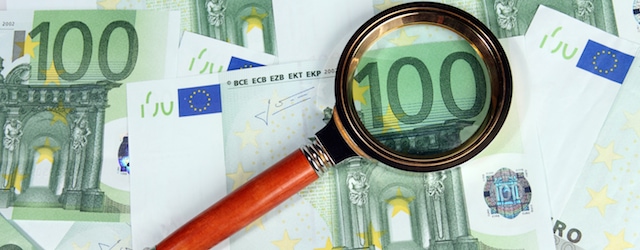Trends | Foreign Exchange

The global imbalance created by Europe’s huge current-account surplus and excess savings has created a glut of euros that could condemn the single currency to broad-based weakening, according to a report by George Saravelos, London-based FX strategist at Deutsche Bank.
Combined with aggressive easing by the European Central Bank, the “euroglut” could lead to some of the largest capital outflows in the history of capital markets, Saravelos says. Europe’s current-account surplus is bigger than China’s in the 2000s, at around $400 billion a year, he says. The eurozone doesn’t need an even bigger trade surplus when the real problem is weak domestic demand, he adds.
“The clearest evidence of euroglut is Europe’s high unemployment rate combined with a record current-account surplus,” Saravelos says. “Both are a reflection of the same problem: an excess of savings over investment opportunities.”
Following the introduction of negative deposit rates in Europe, banks have moved money abroad. As the world’s biggest savers, Europeans will drive international capital flow trends for the rest of this decade, Saravelos says. The next few years will mark the beginning of very large European purchases of foreign assets,
he notes.
The euro has been falling versus the dollar for the past few months. It hit a two-year low in early October, amid signs of weakening in the German economy.



